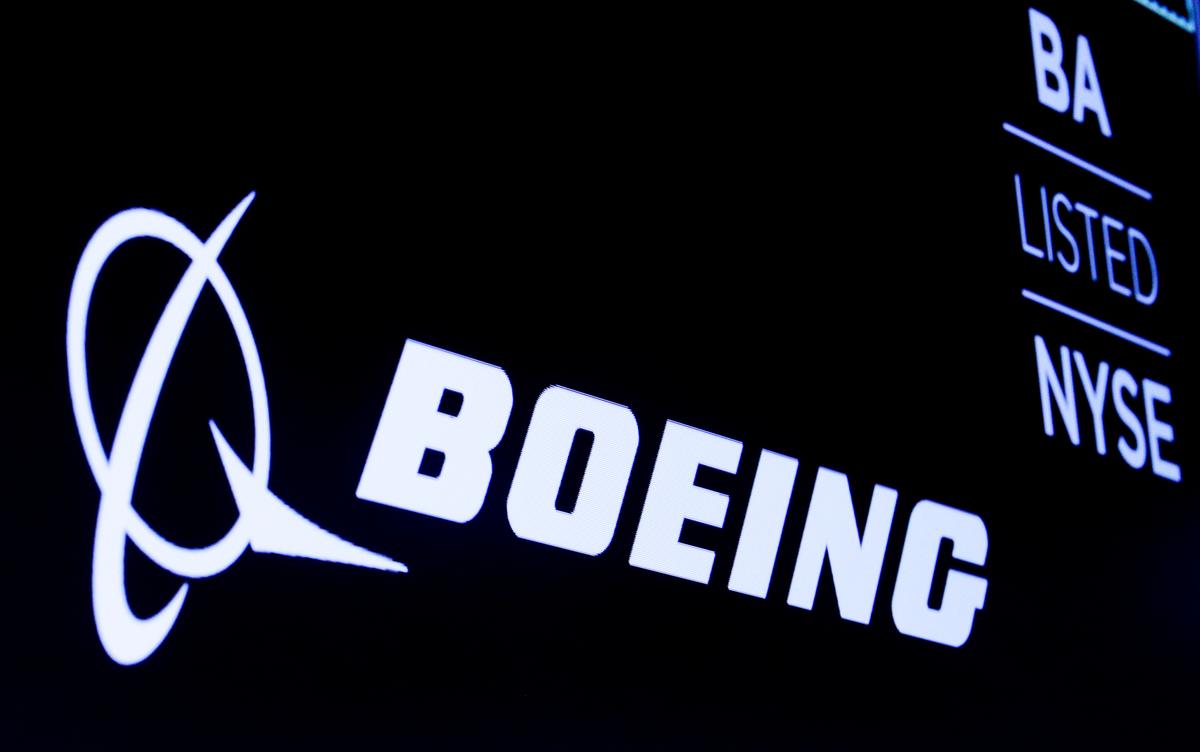Chicago’s Antiwar Organizing Victory over Boeing
Asha Ransby-Sporn & Debbie Southorn / Truthout
(July 17, 2022) — The news released this spring that Boeing, a corporate weapons manufacturer, is moving its headquarters out of Chicago, Illinois, is a win for the anti-militarist movement and came just weeks after an even more meaningful victory for youth organizers who blocked the company from getting a $2 million tax break before they left.
It’s a victory that organizers like us hope will inspire communities in other cities to target weapons manufacturers who are sucking up public resources via tax breaks and government contracts.
By forcing local government to ask questions rather than write blank checks and by telling death-dealing corporations that they are no longer welcome, our movement can undermine the business model of pillaging public budgets in order to reap profit from militarized weapons and violence.
This victory came months after a group of young people blocked traffic to and from Boeing’s corporate headquarters last May, hanging a large banner that read “Boeing Arms Genocide” over the Chicago River that was visible from the corporate offices and commercial walkways in the city’s downtown area.
Following escalated assaults on the Palestinian neighborhood of Sheikh Jarrah, which sparked protests around the world, these youth called attention to Boeing’s $735 million weapons sale to Israel, which was approved by the United States State Department in the same weeks as the assault.
In the following months, organizers with the newly formed Boeing Arms Genocide campaign presented to Chicago’s Office of Inspector General (OIG) and to Alderwoman Maria Hadden with a detailed analysis of how Boeing’s Chicago headquarters has reaped more than $60 million in tax breaks while failing to deliver on promises of job creation. (Alderwoman Hadden represents Chicago’s 49th ward, which is home to large immigrant and refugee communities.)

This set in motion an OIG inquiry into the contract that had made this arrangement possible. At the end of 2021, for the first year in 20 years, Boeing declined to file for a tax reimbursement worth roughly $2 million. Then in May 2022, its leaders announced their headquarters would be leaving the city.
Boeing’s Chicago headquarters reaped more than $60 million in tax breaks while producing weapons and failing to deliver on promises of job creation.
From the onset of the campaign, organizers had set out to ensure there would be no extension of the contract slated to end in 2021, or any new contract that would allow Boeing to continue benefiting from state and local tax breaks, after they’d received these public checks for two decades. The canvassing, petition drives, teach-ins and meetings with city officials resulted in first-time scrutiny on the company’s compliance with the minimal requirements of the contract.
A Freedom of Information Act (FOIA) request confirmed, in the words of the Department of Planning and Development’s Financial Incentives Division Deputy Commissioner Tim Jeffries, “The term of the agreement is over and Boeing has stated they are not seeking reimbursement for the 2021 tax year. The contract is functionally dead.”
Up against a Fortune 500 company, a few hand-painted banners, a little public pressure, and the compelling research of a group of 20-somethings presented to a few city officials might not seem like much. A closer look, however, at the business model of a company like Boeing shows us how much they have to lose from a challenge to the idea that public resources can or should go toward the profits of a weapons manufacturer.
Bush-Era Law Paves the Way for Boeing’s Corporate Exploitation
Making commercial airplanes, what Boeing is most commonly known for, accounts for less than 30 percent of the company’s annual revenue. Boeing is primarily in the business of profiting from war and militarism, not airplanes.
As the world’s third-largest profiter of weapons sales, the company rakes in billions in profit from arming the war on Yemen, Israel’s occupation of Palestine, and India’s ethnic cleansing of Kashmir. https://www.sipri.org/databases/armsindustry
Fifty-five percent of Boeing’s profits come from weapons sales, amounting to more than $32 billion in 2020, to both the U.S. government and 21 countries around the world. Taxpayers within the U.S. gave Boeing$21.33 billion through government contracts in 2020 alone. Chicago’s tax breaks for Boeing happened in the context of the company already reaping huge profit from public resources via U.S. government spending on things like military weapons, border surveillance and the creation of missile systems.
Boeing is primarily in the business
of profiting from war and militarism,
not airplanes.
Boeing is in the business of selling weapons to governments that are used to wage war and enact state violence. In this case, a challenge to corporate tax incentives became a challenge to the whole business model of a war profiteer and a challenge to the idea that the public funds can or should subsidize militarism and profit.
Twenty years ago, Boeing’s move to Chicago was on the early edge of what has become a pattern of corporations relocating to places where they stand to benefit from tax incentives and mega-deals. Local governments compete to offer the best deals for the companies, which are often the worst deals for the public in terms of dollar-for-dollar outcomes.
This pattern was then codified and accelerated by President George W. Bush signing the “Job Creation & Worker Assistance Act” into law just months later in March 2002. Making way for corporations to pocket $300 billion over 10 years, this piece of legislation was a corporate tax break branded as a way to create jobs for everyday people.
This narrative about corporations paying fewer taxes is rooted in the free market idea that relieving the “burden” of things like regulation and taxation allows corporations and the market to create economic growth, jobs and prosperity. However, what we see to actually be true is that corporations are driven by profit, something that is maximized via exploitation and extraction from our natural environment or, in this case, from public funds.
Then known as a Seattle-based company that makes airplanes, Boeing’s move in late 2001 exemplified a desire to separate their executives from their weapons manufacturing hubs and establish proximity to more global business leaders in a “world-class” city. In exchange for housing its headquarters in a downtown skyscraper and promising to maintain only 500 jobs to the city, Boeing would receive annual tax reimbursement checks from the City of Chicago, in addition to further tax breaks from the state.
Even with an impressively low bar, Boeing repeatedly fell short and is now leaving the city after having taken in tens of millions of public dollars without consequence for its failure to deliver for Chicagoans or for the harm the company’s weapons have caused around the world.
Corporate Tax Incentives Benefit Executives,
Not Residents or Workers
Corporations lured to cities and states by tax incentives consistently under-deliver and often are not held to whether they hold up their end of the bargain when it comes to providing jobs and economic growth in exchange for tax cuts. In 2017, then-Wisconsin Gov. Scott Walker brokered what was one of the largest corporate tax incentive deals ever approved. Electronics company Foxconn would receive more than $4 billion in state and local tax incentives on the premise of building a massive new factory that was to create 13,000 jobs.
Two years after the original deal was reached, plans for building a massive factory had been scaled back, and only 178 jobs were created. By 2021, the proposed factory and corresponding deal that former President Donald Trump lauded as being the “eighth wonder of the world” had shrunk dramatically in scope, and the contract was renegotiated after Governor Walker left office. Foxconn never delivered on visions of thousands of jobs created by a huge factory campus despite benefiting from more than a billion public dollars in forgone investment.
Despite the public narrative pushed by right-wingers, centrist Democrats and corporate elites — a narrative claiming that relieving taxes on corporations creates economic growth — those who stand to benefit most from these types of deals are high-level corporate executives, not workers or local residents.
A recent study analyzing the effects of two specific corporate tax breaks showed that for every dollar a company benefits from certain tax breaks, the pay of the company’s top five executives increased by 17 percent to 25 percent.
Evidence does not support the idea that tax breaks actually result in higher wages or better jobs for workers. And a report published by the Action Center on Race and the Economy showed that in the case of Boeing specifically, “The creation of additional jobs and income as spending from the Boeing headquarters rippled through the economy was not significant.” This is despite the city and state giving $63 million in tax incentives to bring 500 jobs, which equate to about $126,000 per job per year financed by the city, most of which already existed before the move.
Imagine those funds invested in the public sector, in high-paying union jobs, dedicated to the programs and services that working communities are constantly seeking such as health care, education and needed social programs — we could create real jobs programs instead of lining the pockets of executives such as Boeing CEO David Calhoun, who recently bought a $2.7 million condominium in downtown Chicago.

Whether it’s Boeing leaving when tax incentives dry up, Foxconn abandoning its promised factory, or Amazon never coming when it promised cities billions of dollars, these companies have shown that they’ll come when there’s financial incentive and leave when there’s not.
Chicago’s marginalized communities have had to fight ongoing divestment and demand funding for basic needs for decades. Parents and community members went on hunger strike for 34 days demanding the city reopen Dyett High School, one of the almost 50 schools serving predominantly Black students closed under former Mayor Rahm Emanuel in 2013 — partially on the basis of budget constraints.
Also, in 2012, the City of Chicago fired 172 librarians and shortened library hours to save the city $3 million. That same year, the city doled out $1.3 million to Boeing in real estate tax reimbursements. In 2012, the city closed half of its 12 public mental health clinics in a supposed move to save $2.2 million after patients, workers, and community members fought hard to keep clinics open, staging occupations, engaging in civil disobedience and organizing a broad community-based coalition. That year, the city gave Boeing a $1.3 million check to reimburse them for the real estate taxes they had paid.
While a couple million dollars might seem like a drop in the bucket for a company bringing in tens of billions each year, those resources can be live-saving for communities in need of a clinic, a school, a library, and resources or jobs.
Meanwhile, city officials who scoff at communities fighting for marginal but crucial investments are grateful for the mere presence of multinational corporations. In the same FOIA that confirmed the end of the Chicago contract, City Financial Analyst Patrick Lynch, who was assigned to administering the Boeing contract, replied on the email thread confirming that Boeing would not receive its final tax reimbursement with, “boeing doing us a solid.”
What Lynch was referring to as “a solid” was Boeing’s choice to decline to file for its final $2 million tax reimbursement after years of getting a tax break despite being in likely breach of contract, and reaping billions in profit while Chicago’s marginalized communities have seen the closures of schools, clinics, libraries and more.
This attitude is a reflection of a warped set of priorities held by city officials, clearly confused about who public resources belong to, and lacking willingness to actually interrogate predatory corporate relationships with city government.
Let’s Divert Resources From Militarized
Violence to Community Investment
Not only does Boeing take resources away from other needed public goods and services by pulling in tax breaks and government contracts, it also profits from the production and sale of deadly weapons used to wage militarized violence around the world. Boeing earned over $62.29 billion in revenue in 2021.
Its fighter jets and helicopters were used in an attack that killed 256 Palestinians in May of last year. In the Saudi-led war on Yemen, the single largest weapon killing civilians has been guided missiles, of which Boeing had sold Saudi Arabia more than 6,000 guided bombs by 2019. In the 2016 bombing of a market in the Yemeni village of Mastaba, which killed 97 people (including 25 children), destroyed infrastructure and left massive destruction, Boeing weapons guidance kits were used to ensure the missile hit its target.
Boeing doesn’t limit its use of militarized technologies to violence abroad, however. Boeing is heavily involved in the lucrative business of militarizing the U.S.-Mexico border, and held 17 contracts, worth $1.4 billion, with U.S. Customs and Border Protection between 2006 and 2019.
In 2007, Boeing began a dystopic collaboration with ShotSpotter, a faulty, racist, “gun-detection” technology that has been linked to police-perpetrated murders in major cities across the U.S. as a result of a propensity to falsely indicate gunshots and locations only in Black and Brown neighborhoods. In 2007, Boeing collaborated by attaching ShotSpotter’s microphones to Boeing’s drones, with the intention of using them in the skies in Iraq.
A Black-led movement and a decade of organizing around divesting from police in order to invest in community resources in Chicago and across the country has set the stage for a campaign like the one against Boeing: campaigns like No Cop Academy, which fought the construction of a multimillion-dollar police academy in Chicago; the campaign in Durham, North Carolina that won the creation of a city-funded community led Safety & Wellness Taskforce as an alternative to hiring more police officers; and the hundreds of defund police campaigns organized since the uprisings in 2020.
While not all of those campaigns have seen material wins, they have all helped build a movement that has forced a reckoning around the meaning of public safety and increased scrutiny on city budgets and the use of public resources.
A reinvigorated antiwar movement would do well to learn from the visionary work of police and prison abolitionists by finding more local contracts and ties to interrogate while decrying the violence of wars and the profiteering of weapons manufacturers.
There is a direct correlation between elected officials choosing to give tax breaks to companies making weapons, and simultaneously choosing to invest in police over the programs and services that communities actually need locally and are demanding. By prioritizing investment in militarization, police and corporate interests, cities are helping to destabilize communities locally and around the world for the sake of profit.

While companies like Boeing continue to rake in billions from producing and selling weapons, there is a pathway for more communities to organize, to resist public dollars lining the pockets of war profiteers instead of going toward the public good. While Boeing leaving Chicago and taking its headquarters to Virginia may not be a standalone win, blocking the company from its last paycheck from the city and the precedent it sets certainly is.
As local groups calling out Boeing emerge in more and more cities across the country, from the Washington, D.C., area to Seattle to St. Louis the company should expect and deserves heat wherever it goes.
Everyday people, like the young Black and Brown organizers resisting Boeing in Chicago, have the power to make it no longer politically acceptable to funnel public dollars toward the profits of a weapons-maker in any city. Wielding that power to make an impact requires us to be organized. It requires us to grow social movements that connect the dots between issues like militarized violence and corporate greed in order to paint a fuller picture of both what is wrong in the world and what is possible.
Stimulus checks, a moratorium on student debt repayment, and a mass movement calling for defunding the police in the context of the pandemic has opened a public conversation and awareness about how public resources get used. So let us use this as an opportunity to open our political imaginations of what’s possible, and to organize for an expansive vision of how public resources can be put toward our collective benefit.
Asha Ransby-Sporn is a Chicago-based community organizer and co-director of Organizing at Dissenters, an anti-militarist youth organization. Her organizing work has involved co-founding and helping build Black Youth Project 100 (BYP100), organizing to get Columbia University to Divest from private prisons, participating in the We Charge Genocide youth delegation to the United Nations, and launching a citywide campaign to defund the Chicago Police Department.
Debbie Southorn is an organizer with the American Friends Service Committee in Chicago, where she supports youth-led efforts to divest from policing and end surveillance. She is a founding advisory board member of the new anti-militarist youth organization, Dissenters.
Posted in accordance with Title 17, Section 107, US Code, for noncommercial, educational purposes.
